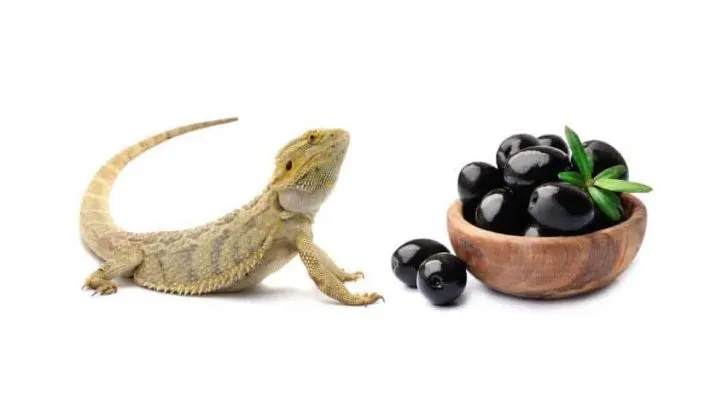If you’ve ever been to the Mediterranian or tried fresh olives in any other scenario, you’ve probably wished to share them with your beardie.
I don’t blame you if you found yourself in a similar situation so here is your answer:
Bearded dragons shouldn’t eat black olives. This doesn’t mean that something horrible will happen if they do, it just means you shouldn’t give your beardie any kind of olives on purpose.
There are some things you can do to prevent this from happening as well as some alternatives you can implement in your bearded dragon’s diet instead of olives.
To find out how severe the consequences of your pet ingesting an olive are and how to prevent it I suggest you keep reading and keep your eyes wide open!
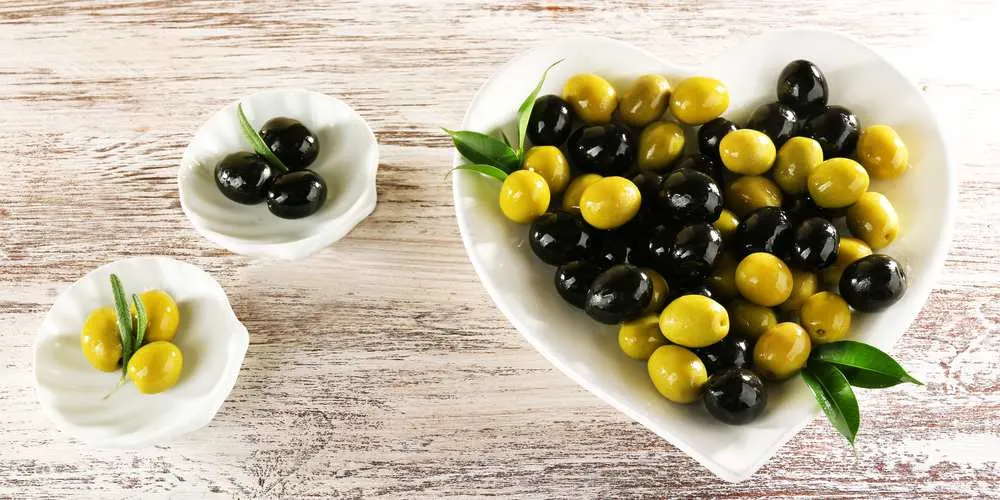
Black Vs. Green Olives
Many people think (myself included) that black and green olives are two different types of fruit. And yes, you’ve heard that correct – “fruit”.
The only thing that separates the black olives from the green ones is the ripeness of the olive. Meaning that when olives are not ripe to their fullest potential they are green and sourer than the black ones.
On the other hand, when olives are fully ripe they turn black and develop a more bitter taste. This is usually when people like to eat them, but it’s not wrong to eat them between the stages of being green and being black as well.
But I digress, unfortunately, your beardie can’t eat either of them for a variety of reasons. There are some nutritional and some health reasons that surround this fact which I will explain in a little bit.
For the time being, the only thing that you need to remember when making a distinction between black and green olives is that it’s mainly the ripeness and that there is no difference between these two when talking about nutritional value.
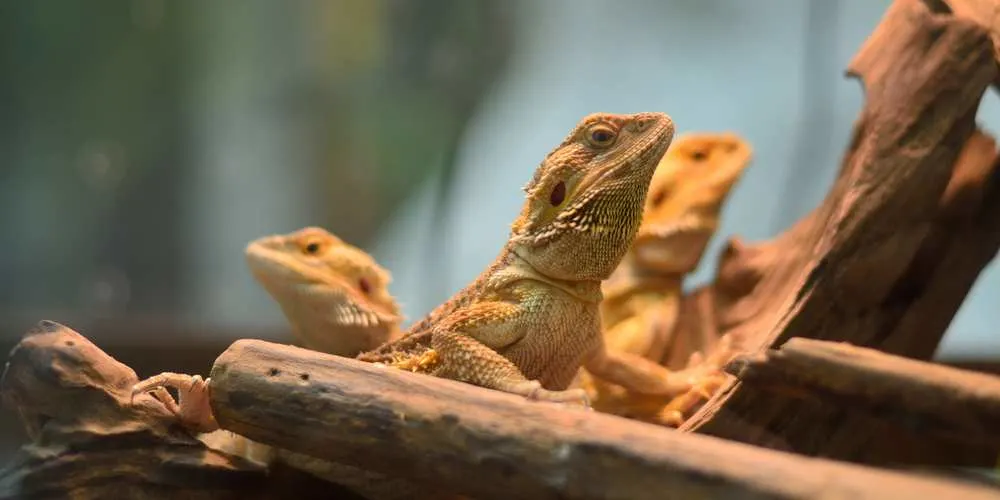
Can Bearded Dragons Eat Black Olives? Why Isn’t It A Good Idea?
Well, the answer is not that simple. To better understand what is happening to your bearded dragon’s body when they regularly ingest black olives you’ll have to understand what is calcium to phosphorus ratio is.
Basically, for any amount of phosphorus, there needs to be at least the same amount of calcium. This goes for bearded dragons only and it’s because you need to take care of their tummy to keep them healthy.
If this is something that you’re not paying attention to and you feed your pet with something that has unhealthy calcium to phosphorus ratio, it’ll be too acidic for your beardie to digest it properly.
You should be paying attention to even when it’s not olives in question but every food you think might be too acidic for your pet’s tummy to handle.
This is the first reason why olives aren’t a good idea when you’re looking to expand your bearded dragon’s menu. If you continually feed your pet with this fruit you can seriously damage its health and shorten its lifespan.
Acidic food will inevitably cause some damage to your bearded dragon’s digestive tract and cardiovascular system. Don’t think this won’t happen to your pet as well because trust me, it will if you decide to ignore all the warnings!
Another thing that makes olives a very bad choice when it comes to feeding bearded dragons is that they don’t contain many nutritional ingredients that play a big role in keeping your pet’s health at a desirable level.
Here are some of the ingredients found in black olives that might interest you so you have a better understanding of what I’m talking about:
- Calcium – 88 mg
- Magnesium – 4 mg
- Zinc – 0,22 mg
- Potassium – 8 mg
- Iron – 6,28 mg
All of these aren’t inherently wrong, but beardies need a lot of protein, fiber, and some carbohydrates. Olives aren’t the best source of any of these so it means your pet doesn’t get what it needs from eating them.
Another thing that might be a potential problem is a choking hazard that might occur if you let your beardie eat an olive that contains the bone.
Olive bones are extremely pointy and hard, your bearded dragon does have quite a bite for an animal its size, but not quite enough to bite through and swallow the bone.
Precisely this situation is potentially lethal for your beardie. If it tries to swallow it and creates a choking hazard there is a chance you won’t notice until it’s too late.
Beardies usually don’t make any sounds while choking on food so it’s hard to notice a situation like this if you’re not looking at your pet while it’s eating.
My Favorite Alternatives To Black Olives
If you were looking to make your beardies diet a little bit more interesting by implementing black olives in it, you’ll have to look for another solution. Some of my favorite veggies to give to my beardie are:
- Beet greens
- Broccoli
- Alfalfa hay
- Beets (on rare occasions)
All of these are perfectly safe and shouldn’t bring any harm to your beloved pet. One of my personal favorites is beets (which I discovered relatively recently) and if you wish to find out some more about it, you can do that here.
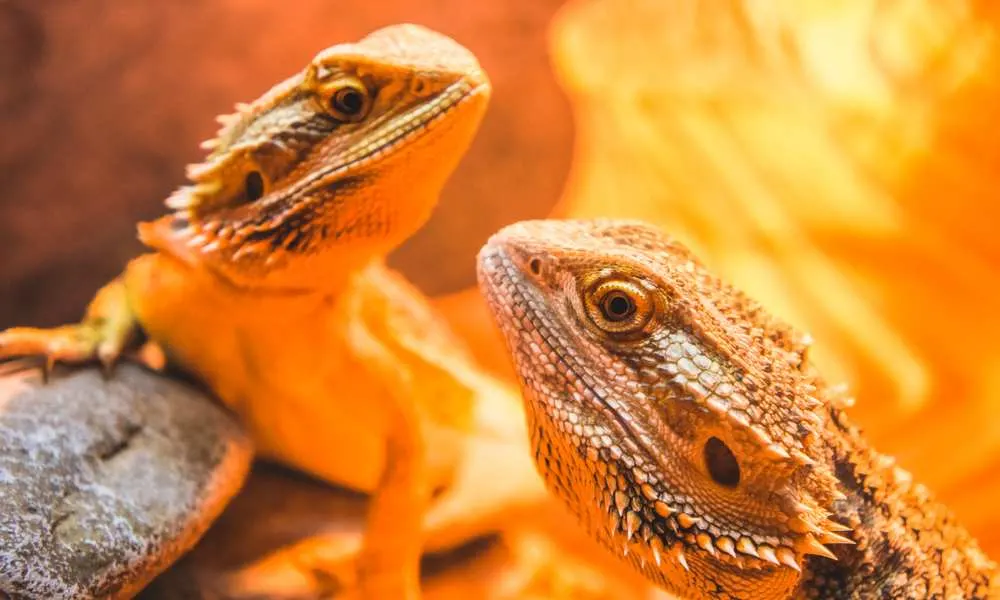
My Beardie Ate A Black Olive, Help!
To be honest, there’s no room for panic if this happens. Nothing will come out of this if your pet ate just a couple of black olives.
The most important thing to monitor is if the olive had a bone or not. If you conclude that the olive had it, it’s best to check if your beardie has any trouble breathing or swallowing. If this is the case, it probably has the bone stuck somewhere in their throat.
In this situation, you should pay a visit to your bearded dragon’s vet and let a professional deal with the situation.
If you try to pull the bone out of its airway you might end up hurting your pet more than it was hurt in the first place.
Remember this before you try anything. If you see your beardie can’t breathe at all, maybe try to give the bone a nudge in one direction to see if it’ll pass on into the stomach.
On the other hand, if you see your beardie having trouble eating that means it swallowed the bone and it’s making a problem in his digestive tract. In this case, it’s also best you take your beardie to the vet.
If your beardie swallowed an olive that doesn’t have a bone inside it, there’s nothing much to worry about.
If it was just a couple of olives from your plate – nothing will happen. Generally, your beardie needs to eat a lot of olives over a longer period of time to cause some digestive problems.
So, in this situation, I’d just highly advise you to pay attention to where you leave your food leftovers just to ensure nothing similar to this ever happens.
Fortunately, bearded dragons haven’t learned how to open jars so your black olives are safe in there, even if you leave them out of the fridge!
I wouldn’t advise you to give some olives to your beardie even if it didn’t get its little claws on some of them earlier, because if they develop a liking towards this fruit, it’s much more plausible that they’ll go for olive or two next time you leave them out on the open.
Sometimes it’s better to keep some foods a secret from your pet than to introduce them to it and then have to fight them off every time you eat that food.
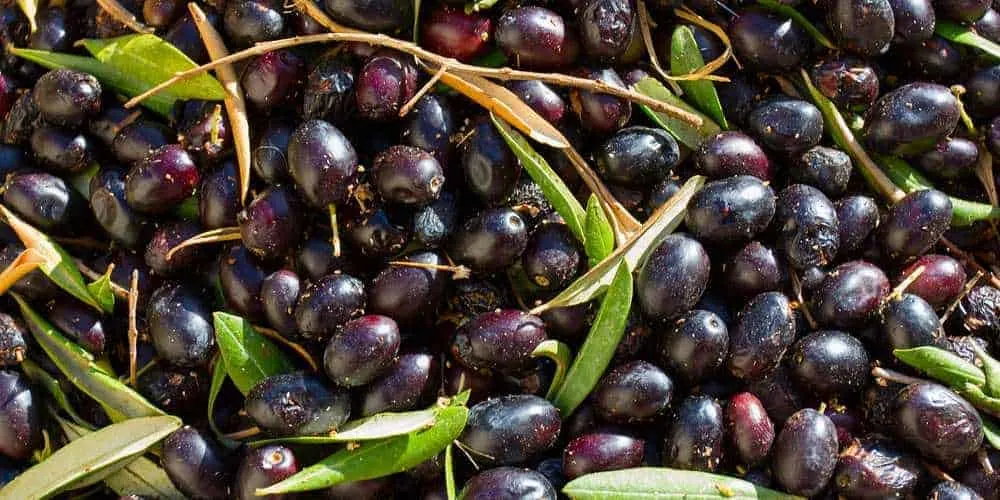
Conclusion
If you’re still wondering if it’s a good idea to do this or if you’re still asking yourself a question of can bearded dragons eat black olives, I think you should read this article once more.
Unfortunately, although it won’t cause any immediate danger to your pet, bearded dragons shouldn’t eat black olives – or any olives in any form for that matter. Instead what I recommend is a healthy amount of veggies that are low in calories as an occasional snack just to spice their diet up a little bit.
And just remember one thing – before adding new food to the list do your research thoroughly!

